A Hands-on University
Children’s University on Business and Economics
Kids ask a lot of questions. Universities have a lot of answers. So what could be better than inviting kids to come to the university? This is exactly what WU does every year in July: At the 2017 Children’s University, the 7-to-12-year-old students had the opportunity to choose from 34 different events and learn about business and economics, money and finance, law, sustainability, and social and intercultural skills. Some of the questions investigated in detail by kids and researchers included:
- Why does the ATM give out money?
- What actually happens in a court of law?
- Nemo & friends – Why won’t we be finding you much longer?
- Social isolation: Why does it happen?
- And the most important question: Why do we need universities?
Summer Celebration
Campus WU is designed to be an open space for people to come together. The restaurants, shops, and grounds are open to the public, not just to students, faculty, and staff. To help emphasize this fact, WU holds a Summer Celebration in June for members of the WU community, corporate and government partners, friends of WU, and local residents. Around 6,000 visitors enjoyed the diverse 2017 program, which offered a street food market, programs for kids, a spectacular BMX show, and live performances by prominent musical acts.
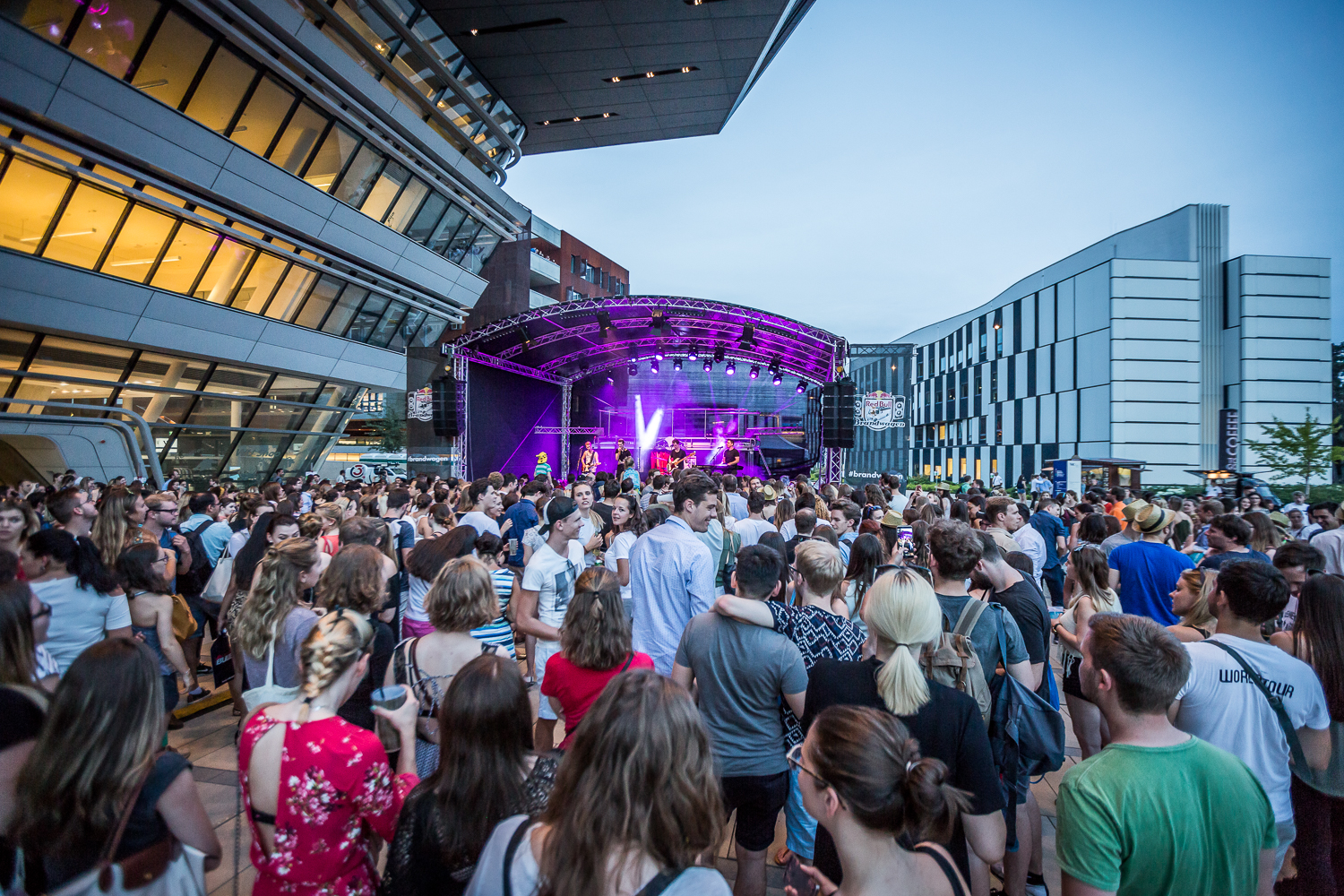
Live Research in the Museum
Can economic research be shown in a museum? Sure, why not? WU took part in the exhibition “handWERK. Tradiertes Können in der digitalen Welt” (handMADE. Traditional skills in a digital world) at the MAK Austrian Museum of Applied Arts in Vienna. In WU’s Live Lab at the exhibition, titled “People and Production,” visitors could take on the role of manufacturers or consumers, participate in small experiments, and reflect on their own views on production and consumption. The results of the experiments were put on display and discussed. Based on the resulting findings, the experimental questions were revised continuously.
What we found was that participants came up with better, more carefully thought-out designs (holiday decorations, snow globes, birthday cards) when they were visible as the producer and valued as individuals.
In a second experiment, we observed that information about the manufacturing process of a product has effects on how the product is experienced – jam, for example, tastes better all of a sudden if we know it’s handmade.
First-hand Knowledge
Series of events focusing on the challenges of today
WU sees itself as a knowledge hub, and we want to present the findings generated by our research to as large an audience as possible. For this reason, we launched the event series ‘WU matters. WU talks.’ in 2016: At panel discussions, round-table talks, and public lectures, WU’s researchers present the results of their work and discuss its impact on current events with prominent guests and the audience. The diverse mix of topics offered was very well received, and around 6,000 people attended the events in 2017.
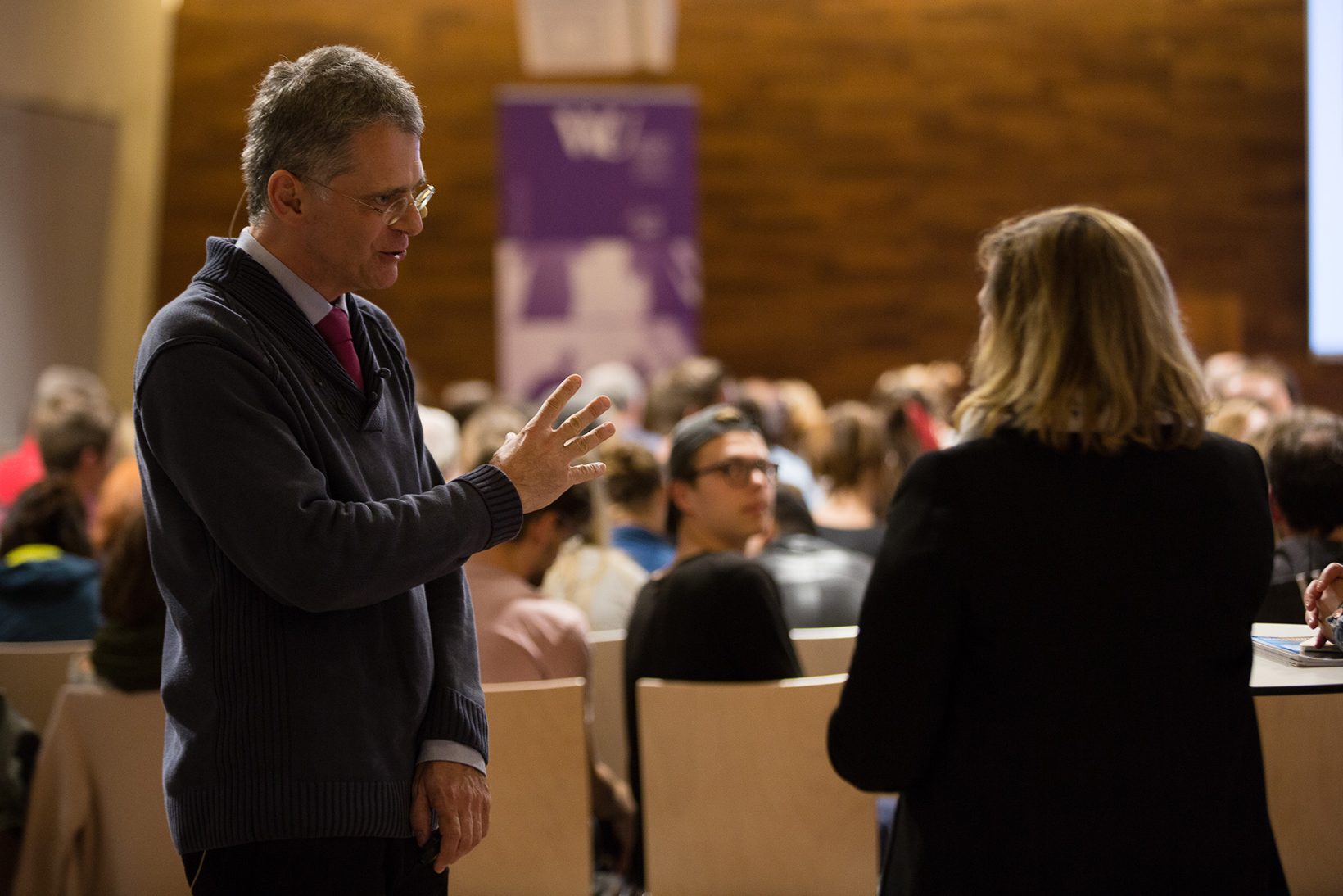
‘WU matters. WU talks.’ events in 2017
James J. Heckman (University of Chicago)
Public lecture (Awarding of honorary doctorate)
Jan Mendling (WU)
Alexander Kaiser (WU)
Public lecture (Department of Information Systems and Operations)
Frank Hensel (REWE)
Peter Schnedlitz (WU)
Panel discussion (Wirtschaft Wissenschaft Unplugged)
Erich Vranes (WU)
Fritz Breuss (WU)
Verena Madner (WU)
Jörg Wojahn (Head of the Representation of the European Commission in Austria, Vienna)
Public lecture (Department of Public Law and Tax Law)
André Martinuzzi (WU)
Katharina Jarmai (WU)
Norma Schönherr (WU)
Public lecture (Department of Socioeconomics)
Stefan Pichler (WU)
Ewald Nowotny (OeNB)
Panel discussion (Wirtschaft Wissenschaft Unplugged)
Phillip Nell (WU)
Public lecture (Department of Global Business and Trade)
Elke Beerbaum (Caritas)
Julian Hadschieff (PremiQaMed)
Michael Meyer (WU)
Discussion (Open Minds)
Stéphanie Mittelbach-Hörmanseder (WU)
Public lecture (Department of Finance, Accounting & Statistics)
Karin Bauer (Der Standard)
Ingolfur Blühdorn (WU)
Thomas Klien (mindfulness coach)
Michael Müller-Camen (WU)
Helga Pattart-Drexler (WU Executive Academy)
Discussion (Nachhaltigkeitskontroverse)
Christoph Badelt (WU, WIFO)
Public lecture
Andreas Salcher (business consultant)
Tina Deutsch (Klaiton)
Gerlinde Mautner (WU)
Discussion (Open Minds)
Edeltraud Hanappi-Egger (Rector, WU)
Michael Ignatieff (President & Rector, CEU)
Panel discussion
Bettina Fuhrmann (WU)
Public lecture (Department of Management)
Georg Lienbacher (WU)
Public lecture (Wiener Vorlesungen)
Margarete Schramböck
Public lecture (2017 WU Manager of the Year Award)
Nadia Abou Nabout (WU)
Michael Buchinger (influencer)
Denise Krautz (ProSiebenSat.1 PULS 4)
Peter Rathmayr (Google Austria)
Katharina Hingsammer (influencer)
Zayad Shah (L’Oréal Austria)
Nils Wlömert (WU)
Panel discussion (Department of Marketing)
Ulrike Schneider (WU)
Julian Hadschieff (PremiQaMed)
Panel discussion (Wirtschaft Wissenschaft Unplugged)
Bernadette Kamleitner (WU)
Gregor Henckel-Donnersmarck (OCist, former abbot of the Heiligenkreuz Abbey)
Discussion (Open Minds)
Martin Wolf (The Financial Times)
Ewald Nowotny (OeNB)
Panel discussion (Department of Economics)
Playpark Sachsenplatz
Can the skills needed to start a business be learned? The Playpark Sachsenplatz is a sandbox for young start-ups and future entrepreneurs, where they can find coaching, workshops, networking opportunities, and mentoring during the initial phases of finding and implementing their business ideas. The Playpark focuses mainly on social innovation, smart cities, and sustainability. The Regional Centre of Expertise for Sustainable Development Vienna (RCE Vienna) at WU is responsible for the concept, implementation, and management of the Playpark.
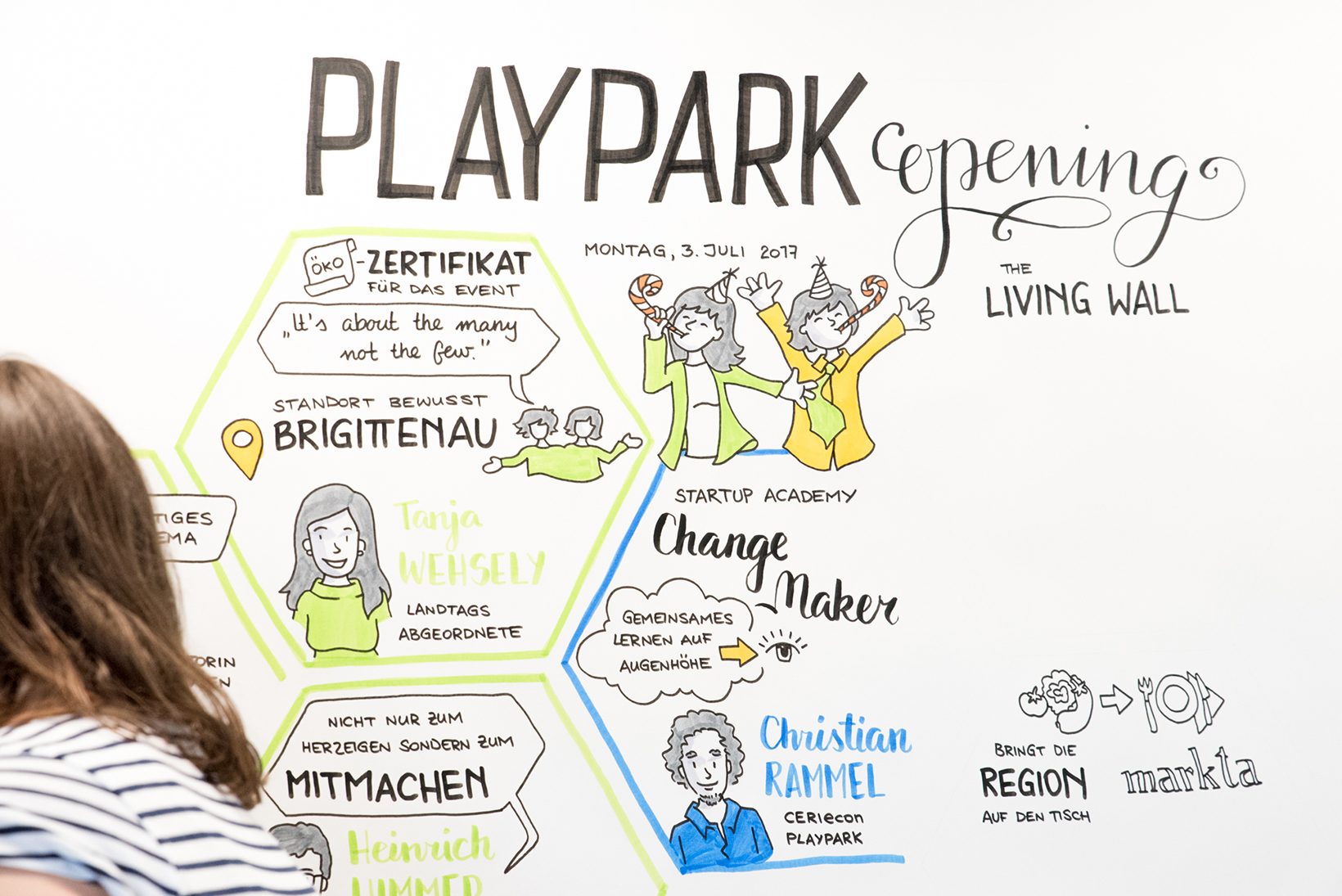
Startup Guide Vienna
This travel guide of a slightly different kind offers an overview of Vienna’s start-up landscape and an introduction to the city’s most important, exciting, and innovative companies. Published by the WU Entrepreneurship Center and the Vienna Strategy Summit, also hosted at WU, the guide also includes case studies and interviews with entrepreneurs as a source of inspiration for potential start-ups. Information on services for entrepreneurs, programs, and spaces provides additional valuable support for new business founders.
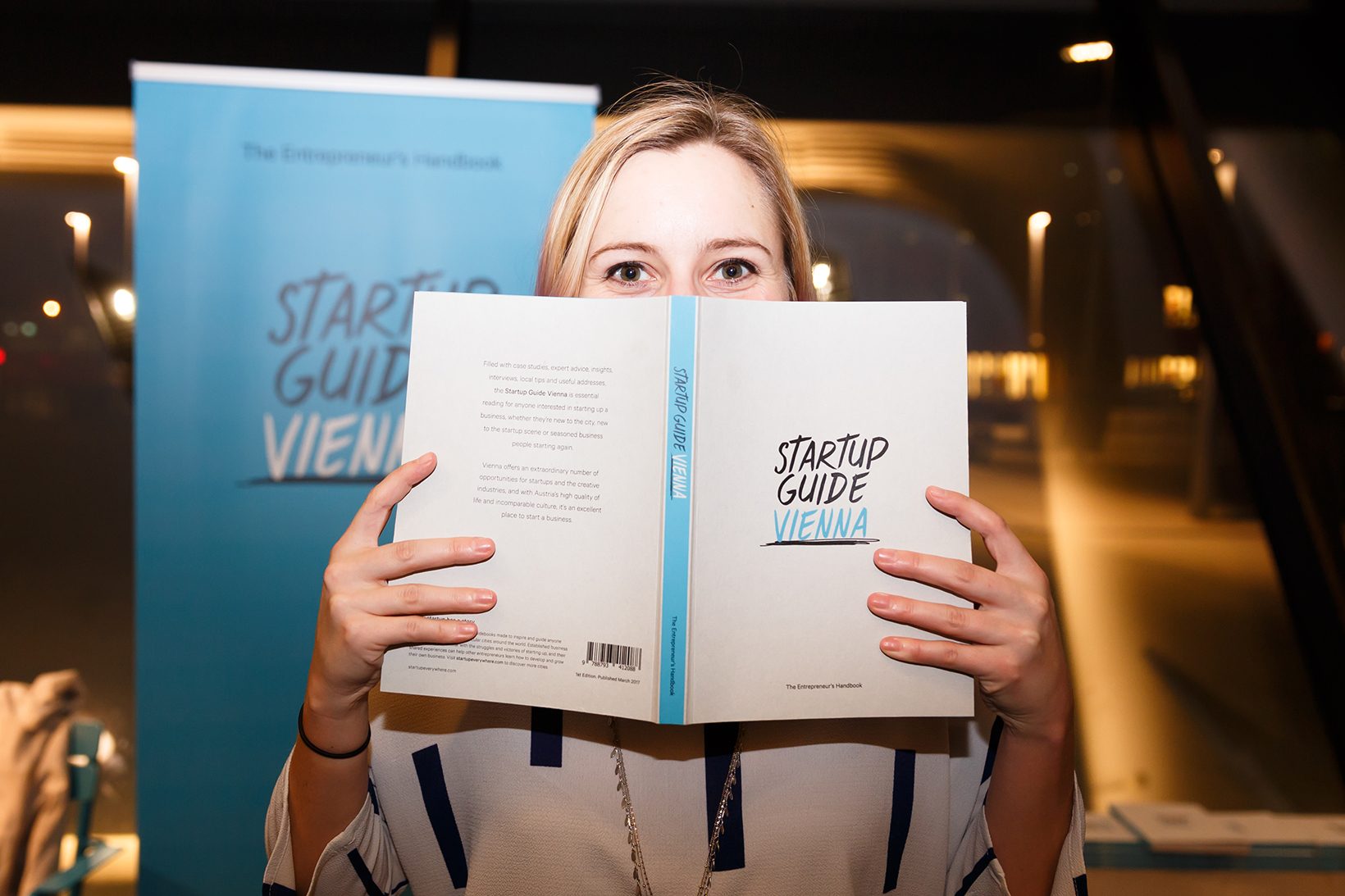
WU and Society
Forum Alpbach
Every year, the European Forum Alpbach brings together hundreds of experts from the fields of science and academia, business, economics, politics, culture, and civil society to exchange knowledge and ideas. Under the title “Conflict & Cooperation,” the 2017 Forum included 20 main seminars and over 200 plenary discussions and breakout sessions, where participants discussed approaches for strengthening democracy and science, the advance of artificial intelligence, and social and ecological innovations. WU researchers are valued contributors in Alpbach, and the following members of the WU community were invited to speak in 2017:
- Christoph Badelt (Institute for Social Policy): Breakout session – Cooperation vs. competition: Economic policy in the EU
- Ulrich Berger (Institute for Analytical Economics): Panel discussion – Universities in the post-truth world
- Edeltraud Hanappi-Egger (WU Rector): Panel discussion – Why does the higher education sector need cooperation skills today?
- Rick McDonell (Institute for Austrian and International Tax Law): Breakout session – Distributed ledger technologies – A “silver bullet” for compliance and regulation?
- Jeffrey P. Owens (Institute for Austrian and International Tax Law): Breakout session – Tax havens: the beginning of a new era?
- Stefan Pichler (Institute for Finance, Banking and Insurance): Breakout session – New business models for banks
- Sarah Spiekermann-Hoff (Institute for Management Information Systems): Breakout sessions – Cyber-security as a critical factor of stability; Digital Security: Social Media; Homo faber digitalis: the working (wo)man in the global digital market; seminar participant – Digital Divide
- Martin Spitzer and Peter Gruber (Institute for Civil and Business Law): Breakout session – Conflict through cooperation: legal liability for human rights abuses in global supply chains
Book presentation: ‘Säuberungen’ an österreichischen Hochschulen 1934–1945
In 2018, WU will be commemorating the dire consequences of Austria’s 1938 Anschluss to Nazi Germany on its predecessor institution, the University of World Trade, with a series of different events, including panel discussions, exhibitions, and concerts. In October 2017, the Commemorative Year was opened at WU with a presentation of the book “‘Säuberungen’ an österreichischen Hochschulen 1934–1945. Voraussetzungen, Prozesse, Folgen,” edited by WU historian Johannes Koll. Since 2012, Koll has been investigating and documenting the expulsion of Jewish students, faculty, and staff from the University of World Trade during the Anschluss period.
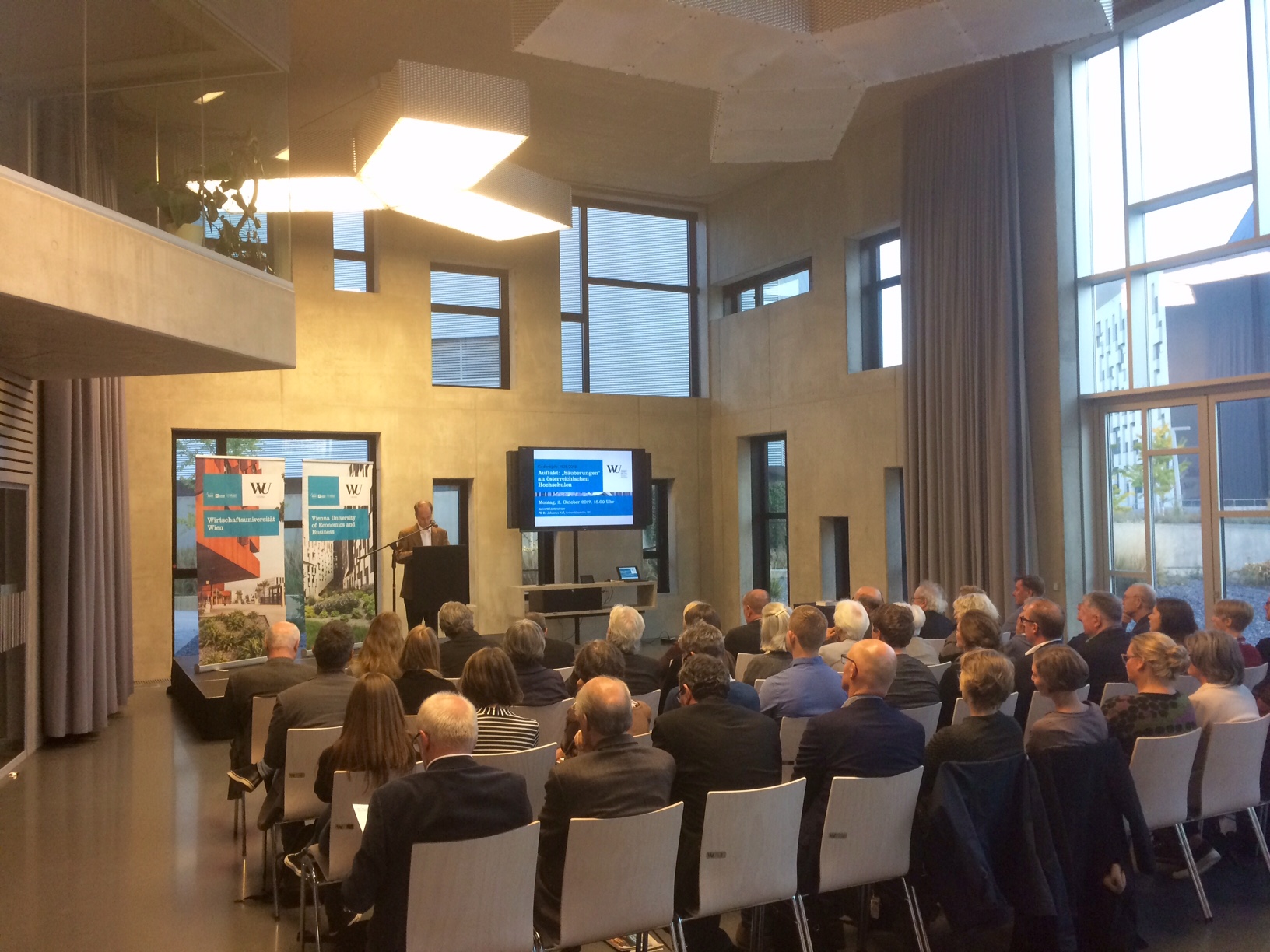
Austrofascism, National Socialism, and the denazification process that started after Austria’s liberation from Nazi rule – the various regime changes in the first half of the 20th century had far-reaching consequences for Austria’s universities. “Purges” were carried out among students and university staff to help to bring society in line with the positions of the regimes in power. The contributions presented in this volume take a close look at the conditions under which these political interventions were carried out, the way they were implemented, and the effects of the politically motivated changes to the faculty and the student population. The book provides an analysis of the developments at the University of World Trade and at other universities across Austria, and also includes an interview with a former Jewish student at the University of World Trade.
March for Science
The worldwide March for Science took place on April 22, 2017. This global event was held to demonstrate the important role of science for society. WU’s Rector’s Council encouraged the WU community to participate in the March for Science, and numerous WU researchers took active part in the demonstration.

